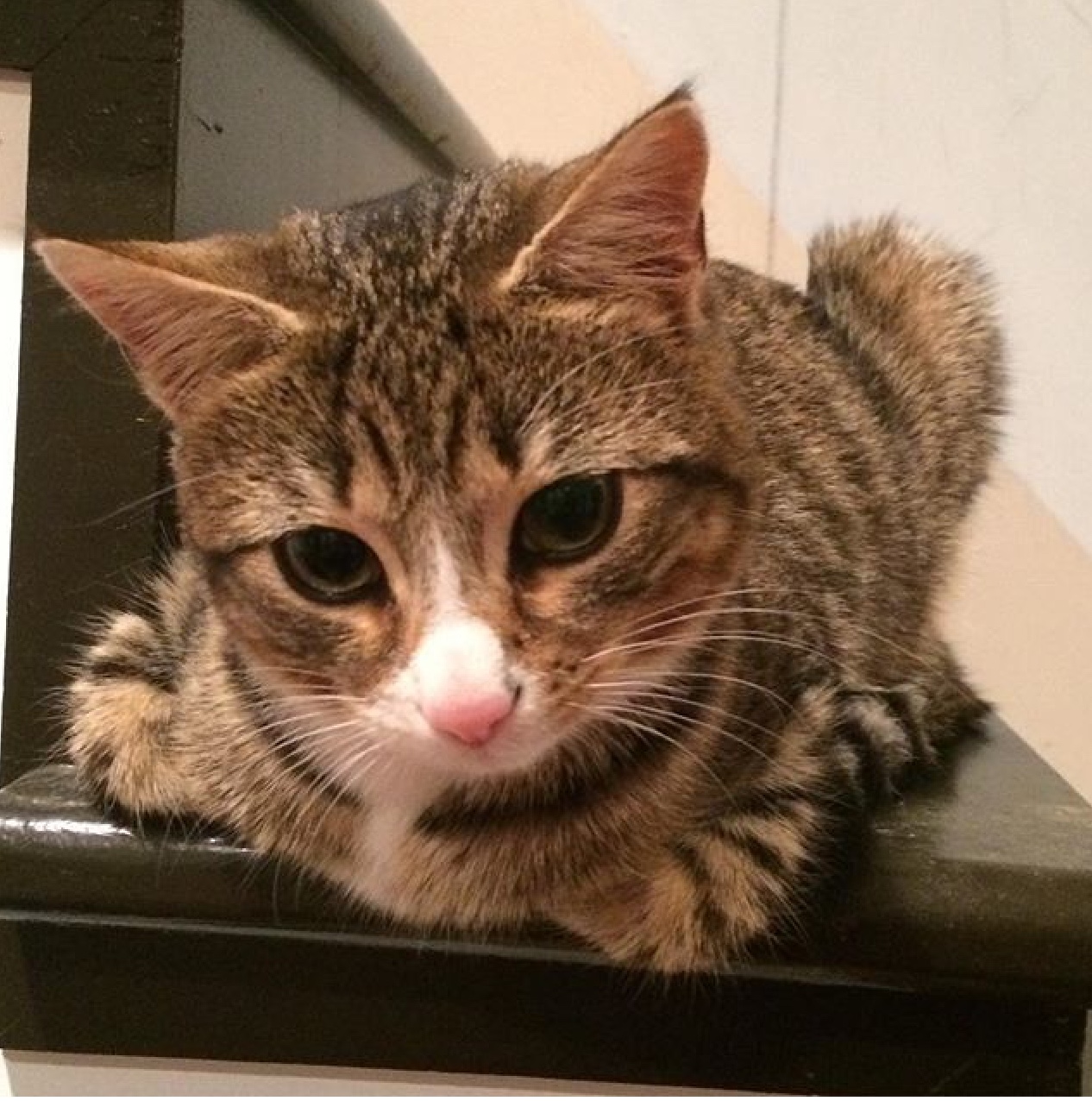A few weeks before Christmas, my husband was chatting in the yard with our neighbor when a flash of fur went streaking across the driveway and up a tree. Our dogs were hot on its tail, but the fur-ball made it to the safety of the tree in the nick of time. Curious, my husband went to investigate and found a barely 8-week-old kitten all puffed up, traumatized and spitting. He kissed and called to her and, to his surprise she jumped onto his shoulders and immediately began purring. The wisdom of what happened next is certainly up for debate: My dear husband brought the kitten to the house to show our two daughters. That kitten hasn’t left the house since!
We learned later that evening that our other neighbor found a kitten as well. It seems that someone dropped their unwanted kittens in the country. I imagine they dropped them near a farm, because, as the old saying goes, what farm can’t use more cats?
This isn’t the first cat that has been “dropped off” at our farm. It has been a fairly regular occurrence, resulting in at least 15 additional cats over the years. I’ve heard the same from other farmers, too, and some even had a dog or two simply “appear.” According to the American Society for the Prevention of Cruelty to Animals (ASPCA), millions of pets are abandoned by their owners every year. And it would seem that some of these pet owners find it perfectly acceptable to drop their house-pets at a farm. As the unwitting and unwilling recipient of these animals, I find this practice completely unacceptable.
But cats are great for farms, aren’t they? Sure, rats and mice are found on probably every farm on earth. Keeping their population in check is both financially prudent and necessary for health and safety. But even on farms, where cats have a “job,” the farmer is responsible for these animals. For starters, cats need to be fed. Now, it may sound like feeding them would run counter to the idea that they’re supposed to be killing rodents. But quite the opposite is true. A cat given no food will conserve their energy, much like a lion on the savannah, and only hunt what it needs to survive. A cat given a regular diet of kibble will kill far more mice and rats simply for sport. Anyone that has ever seen a cat “play” with their prey has witnessed this. A well-fed cat is a much better hunter.
Secondly, farmers try their best to ensure all cats on premises are either spayed or neutered. As the person buying the kibble every week, I can assure you, I want to keep the mouths I feed to a minimum. But more importantly, I do not need nor want unchecked breeding and interbreeding. Cats can have litters of as many as 12 kittens, which are then old enough to breed in just under six months. You don’t have to be a math whiz to understand how quickly that can get out of hand! And old wives’ tale or not, I’ve heard on too many occasions about birth defects and health problems from interbreeding to want to tempt fate. I keep all cats on our farm fixed, which means additional out-of-pocket expenses.
Finally, a house pet that has been raised in the comforts of a warm, cozy home has little chance of survival on a farm. Quite a few of the cats that showed up on our doorstep over the years had clearly never lived a day in their lives out of doors, and desperately wanted to be in our house. A farm cat has a hard life. Outdoor cats have about half the life expectancy of an indoor cat, due to predators like foxes and coyotes, being struck by a vehicle on a busy road, or diseases like feline leukemia and AIDS. Dropping off your unwanted pet in the country is downright cruel.
So, on behalf of all farmers everywhere, please heed this public service announcement: DO NOT DROP YOUR UNWANTED PETS AT FARMS. According to the ASPCA, the number one reason for pet abandonment is financial insecurity. It’s expensive to keep a pet! But passing along an unwanted expense to farmers that are already having a hard time making ends meet is simply unforgivable. If you need to re-home your animal for any reason, please call one of our excellent area shelters. Depending on your reason for re-homing the animal, the shelter may be able to help you keep it. If you need help affording food, help with veterinary expenses, or assistance with behavioral issues—the shelters can be one of your best resources. And, in the words of the great Bob Barker, get your pets spayed and neutered!
The kitten that arrived in December has an appointment to get spayed. She has been wormed, flea treated and got her vaccinations. She eats like a horse. She’s also very sweet…I just wish the person who dropped her off had also dropped off a wad of cash or small savings account to cover the expenses! Better yet, I hope that person (and everyone reading this) will consider donating money, goods or time to any of our area’s fine animal shelters. They provide such an important service and can certainly use the help.
